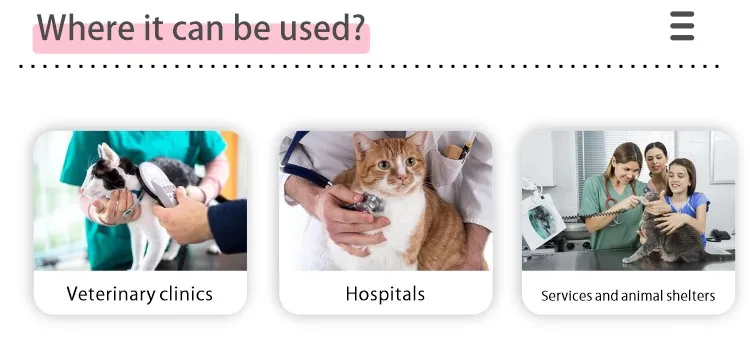Pet Shot Tips: Top 10 Essential Tips for a Successful Vaccination Experience
Pet shot vaccinations are crucial for maintaining the health and well-being of our furry friends. As a responsible pet owner, it's important to ensure that……
Pet shot vaccinations are crucial for maintaining the health and well-being of our furry friends. As a responsible pet owner, it's important to ensure that your pet receives vaccinations on time and in the most effective manner possible. Here are the top 10 essential tips for a successful vaccination experience, designed to make the process as smooth and stress-free as possible for both you and your pet.
1. **Understand the Vaccination Schedule**: Before scheduling your pet's vaccinations, it's essential to understand the recommended vaccination schedule for your pet's age and lifestyle. Vaccines are typically administered in a series, with booster shots required at regular intervals. Consulting with your veterinarian can help you create a personalized vaccination plan.
2. **Choose a Reliable Veterinary Clinic**: Selecting a reputable veterinary clinic is crucial for ensuring the safety and efficacy of your pet's vaccinations. Research clinics in your area, read reviews, and ask for recommendations from other pet owners. A reliable clinic will follow strict protocols and use high-quality vaccines.
3. **Prepare Your Pet**: Preparing your pet for the vaccination process is essential for reducing stress and anxiety. Familiarize your pet with the veterinary clinic environment by visiting it before the appointment. This can help your pet feel more comfortable and relaxed during the vaccination process.

4. **Fast Your Pet Before the Appointment**: To ensure the effectiveness of the vaccine, it's recommended to fast your pet for at least four to six hours before the appointment. This helps prevent any potential nausea or vomiting that could occur during or after the vaccination.
5. **Discuss Side Effects and Allergies**: It's important to discuss any potential side effects of the vaccine with your veterinarian. Some pets may experience mild side effects such as soreness at the injection site or temporary fever. However, discussing any allergies or previous adverse reactions can help your veterinarian choose the most appropriate vaccine for your pet.
6. **Administer Post-shot Care**: After the vaccination, it's important to provide your pet with plenty of water to help flush out any vaccine residue from the body. Additionally, monitor your pet for any signs of discomfort or unusual behavior. Most side effects are mild and temporary, but if you notice anything concerning, contact your veterinarian immediately.

7. **Stay Updated on Vaccine Protocols**: Vaccine protocols are constantly evolving as new research and data become available. It's important to stay informed about the latest recommendations and updates from your veterinarian. This can help ensure that your pet receives the most effective and up-to-date vaccinations.
8. **Consider Alternative Vaccination Methods**: For pets with severe allergies or other health conditions, alternative vaccination methods such as intradermal or sublingual vaccinations may be considered. These methods involve injecting the vaccine under the skin or into the mouth, respectively, and may be less stressful for certain pets.
9. **Keep a Vaccination Record**: Keeping a detailed vaccination record can help you track your pet's vaccination history and ensure that all necessary vaccinations are up to date. This record should include the dates of each vaccination, the type of vaccine administered, and any side effects or concerns noted.

10. **Promote a Healthy Immune System**: A healthy immune system is essential for your pet's overall well-being and the effectiveness of vaccinations. Feeding your pet a balanced and nutritious diet, providing regular exercise, and maintaining a healthy weight can all contribute to a strong immune system.
By following these essential tips, you can help ensure a successful vaccination experience for your pet. Regular vaccinations are a crucial part of pet care, and by taking the necessary steps, you can help protect your furry friend from preventable diseases and ensure their long-term health and happiness.